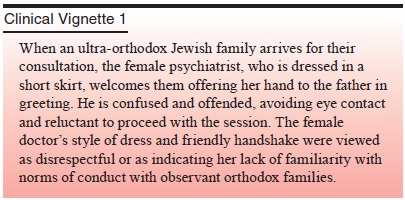Chapter: Essentials of Psychiatry: The Cultural Context of Clinical Assessment
Culture and Gender
Culture and
Gender
Gender refers to the ways in which cultures
differentiate and define roles based on biological sex or reproductive
func-tions. Because of this link with physical aspects of sex, there is a
tendency to view gender differences as biological givens. However, while some
distinctions may be closely related to the physiological differences between
males and females, most are assigned to the sexes on the basis of specific
cultural beliefs and social organization (Comas-Diaz and Greene, 1994).
Men and women do have some fundamentally different
experiences of their bodies, of their social worlds and of their life course.
It has been suggested that women are more in touch with their bodies because of
the experiences of menstruation, child-bearing, childbirth, breast-feeding and
menopause. These differ-ences may be as substantial as any between disparate
cultures. At the same time, there is much evidence that these bodily grounded
experiences vary substantially across cultures. For example, the anthropologist
Margaret Lock (1993) has shown that Japanese women report fewer bodily symptoms
of menopause and do not think of the end of menstruation as a distinctive
“change of life” in the same terms as many women in North America.
There are also important gender differences in
styles of emotional expression, symptom experience, and help-seeking. In
epidemiological surveys in the USA, women tend to report more somatic symptoms
as well as more emotional distress and they are more likely to seek help for psychological
or interpersonal prob-lems. However, the gender difference in symptom reporting
var-ies significantly cross-nationally (Piccinelli and Simon, 1997).
In North America, important differences have been
docu-mented in male and female styles of conversation that are rel-evant to the
clinical context (Tannen, 1994). In general, women tend to give more frequent
acknowledgments that they are listen-ing to a speaker. They may give signs of
assent simply to indicate they are following the conversation. Men tend to be
more taciturn and, if they signal assent, it usually means they actually agree
with the speaker. These differences in communication style may lead to
systematic misunderstandings between men and women that are further aggravated
by cultural differences in gender roles and etiquette.

In many societies, gender is associated with marked
dif-ferences in power and social status. For example, in patriarchal societies,
men have specific power and privileges that give them a measure of control over
the lives of women. This is often coupled with responsibilities for maintaining
family honor and well-being. In recent years, North American society has
es-poused social and political equality in gender roles. From this egalitarian
point of view, patriarchal families may seem oppres-sive to women. However,
women may accept and participate in cultural definitions of their roles that
appear restrictive by North American cultural norms but that make family life
meaningful. Any judgment as to whether a given family’s relationships are
oppressive or pathological must not only take into account social norms and
practices but also explore the meaning of issues and events for the individuals
involved.
Differences in cultural definitions of gender roles
may be-come sources of conflict after migration. Culturally prescribed patterns
of marriage and child bearing may be central to the social status, identity and
self-esteem of men and women even when they are not given the same importance
in the dominant cultures.

Related Topics